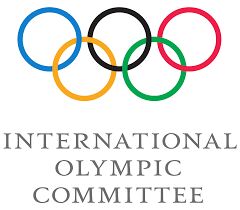IOC Defies France's Hijab Ban: Paris 2024 Olympics to Allow Headscarves in Athletes' Village
The International Olympic Committee has decided to allow athletes to wear hijabs in the Paris 2024 Olympic Games, despite France's ban on hijabs for its athletes. This decision promotes inclusivity and diversity but highlights the challenges in reconciling religious and secular values.
In a significant move, the International Olympic Committee (IOC) has decided to allow participants in the Paris 2024 Olympic Games to wear hijabs, also known as headscarves, in the athletes' village. This decision comes just days after France's sports minister banned hijabs for the country's athletes.
While the IOC's ruling applies to the Olympic Village, French athletes are still bound by their sports federation's rules and are not permitted to wear hijabs during the games. The IOC spokesperson stated that there are no restrictions on wearing the hijab or any other religious or cultural attire within the Olympic Village, which serves as home to the majority of the 10,000 athletes who attend the Olympic Games.
This announcement marks a significant step towards inclusivity and respect for religious and cultural diversity. However, it is important to note that French athletes are subject to the laws and regulations of their country. The French Sports Minister, Amelie Oudea-Castera, recently emphasized the principle of secularism and announced that athletes from France would be barred from wearing hijabs during the Paris Games.
The French government aims to ensure absolute neutrality in public services and believes that religious symbols should not be displayed during sporting events. France has strict laws in place to protect its form of secularism, and this has often resulted in restrictions on the Muslim community.
The country has faced criticism for banning the abaya in schools and upholding a hijab ban during football competitions. Despite being home to one of Europe's largest Muslim minorities, France remains the only country on the continent that excludes hijab-wearing athletes from most domestic sports competitions.
Various Muslim associations and human rights groups argue that France's laws have undermined democratic protections and left Muslims vulnerable to abuse. The United Nations human rights office has also condemned the decision to bar athletes from wearing hijabs, arguing that no one should impose on a woman what she should or should not wear.
It is important to recognize that the issue of hijabs in sports is not new. In 2016, Ibtihaj Muhammad made history by becoming the first United States team member to compete in the Olympics while wearing a hijab. Her achievement highlighted the need for inclusivity and representation within the world of sports.
As the debate surrounding the hijab continues, it remains crucial to balance religious and cultural freedoms with the principles governing each country. The IOC's decision to allow hijabs in the Olympic Village is undoubtedly a step towards promoting diversity and inclusivity within the sporting community. However, the contrasting stance taken by the French government highlights the ongoing challenges in reconciling religious and secular values.





